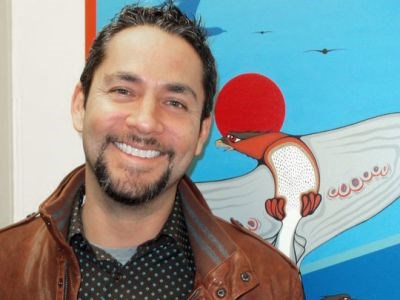Pursuing a career in forestry for J.P. (Jean Paul) Gladu seemed almost preordained in following in the logging footsteps of his grandfather and father.
But when the 39-year-old president of Papasay Management Corporation graduated from Sault College's forest tech program in the early 1990s and headed to British Columbia to work for the National Aboriginal Forestry Association, preserving Canada's pristine forests was foremost on his mind.
“I wanted to be a conservation officer, and if did that I would have a lot less grey hair by now.”
Gladu is spearheading the revival of a dormant Ojibway First Nation community on the shores of Lake Nipigon. While helping map its streets and plan its water and sewer infrastructure, he's simultaneously assembling the community's own industry.
As a senior business development advisor for the Bingwi Neyaashi Anishinaabek (formerly Sand Point) First Nation, the future jobs for its membership of 250 will come from its own cedar sawmill, a pellet and co-generation plant, with further plans for a wind power project, an aggregate operation, an equipment leasing business and a possible mining-related development.
“I got this taste in my mouth to make an improvement in the communities across this country and it's all I've done, First Nations and natural resources,” said Gladu, who runs his own Ottawa-based consultancy business, Aboriginal Strategy Group, built on his international advocacy work with indigenous people.
What Gladu is helping create is a community and industry test bed that features a strong First Nation training component; “an incubator for doing things differently. We're trying to be as innovative as we can and create the best governance structure.”
Gladu grew up in Thunder Bay but retreated to the southeastern shores of Lake Nipigon and Poplar Point every summer.
“Every chance I got I went hunting, fishing and snaring. I've spent many, many days up and down that lake and around the islands, up the Little Jackfish River and saw moose, caribou, golden eagles and white pelicans.”
Bingwi Neyaashi Anishinaabek only regained its reserve in April 2010 after years fighting for its status in the courts. The First Nation was left out of the 1850 signing of the Robinson Superior Treaty.
“We're now building out our industry, which is going to create a number of jobs for membership to afford their own homes on reserve,” said Gladu.
“We've got some ideas on how we're going to get a first phase (of lots) done with our community housing this year. The following year, we're going to see an explosion. It's going to be a busy place.”
A $5.3-million value-added sawmill will be operating this fall and a $15-million pellet mill begins construction this summer in time for a 2013 startup.
Last spring, the pellet project received a 15,000-cubic-metre Crown wood allocation from the province, which proved to be emotional news for Gladu's father, Paul, who is the band's chief.
Lining up the training, technology and future customers are Thunder Bay businessmen Ed Fukushima and Larry Levchak, owners of an Atikokan wood pellet operation. And the First Nation is getting close to finalizing the project financials with Chinese investors.
Residential lots will be cleared and prepped this year for the first batch of 15 to 20 units, in 2013.
“It's not going to be a retirement or social assistance community, it's going to be a budding, growing economy,” said Gladu.
The new stage of evolution is planning for an upscale resort facility as part of a waterfront development project.
“The amazing thing about this project is the whole of Lake Nipigon is protected. It's a beautiful lake where you can still drink the water out of it. It's world class for fishing, hunting and ice-climbing.”
Gladu said taking on patient industry partners, who subscribe to First Nation cultural values of measured and sustainable development, will allow Aboriginal people to gain credibility and become full-fledged equity players in resource development.
“In the grand scheme of things, First Nations are relatively new to business in the North. Industries have had hundreds of years to figure things out and they expect us to turn around in a short amount of time and have all the right answers.
“If we build up our financial equity and human capital and knowledge equity, we'll get there.”




